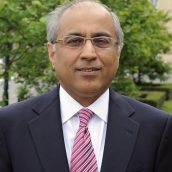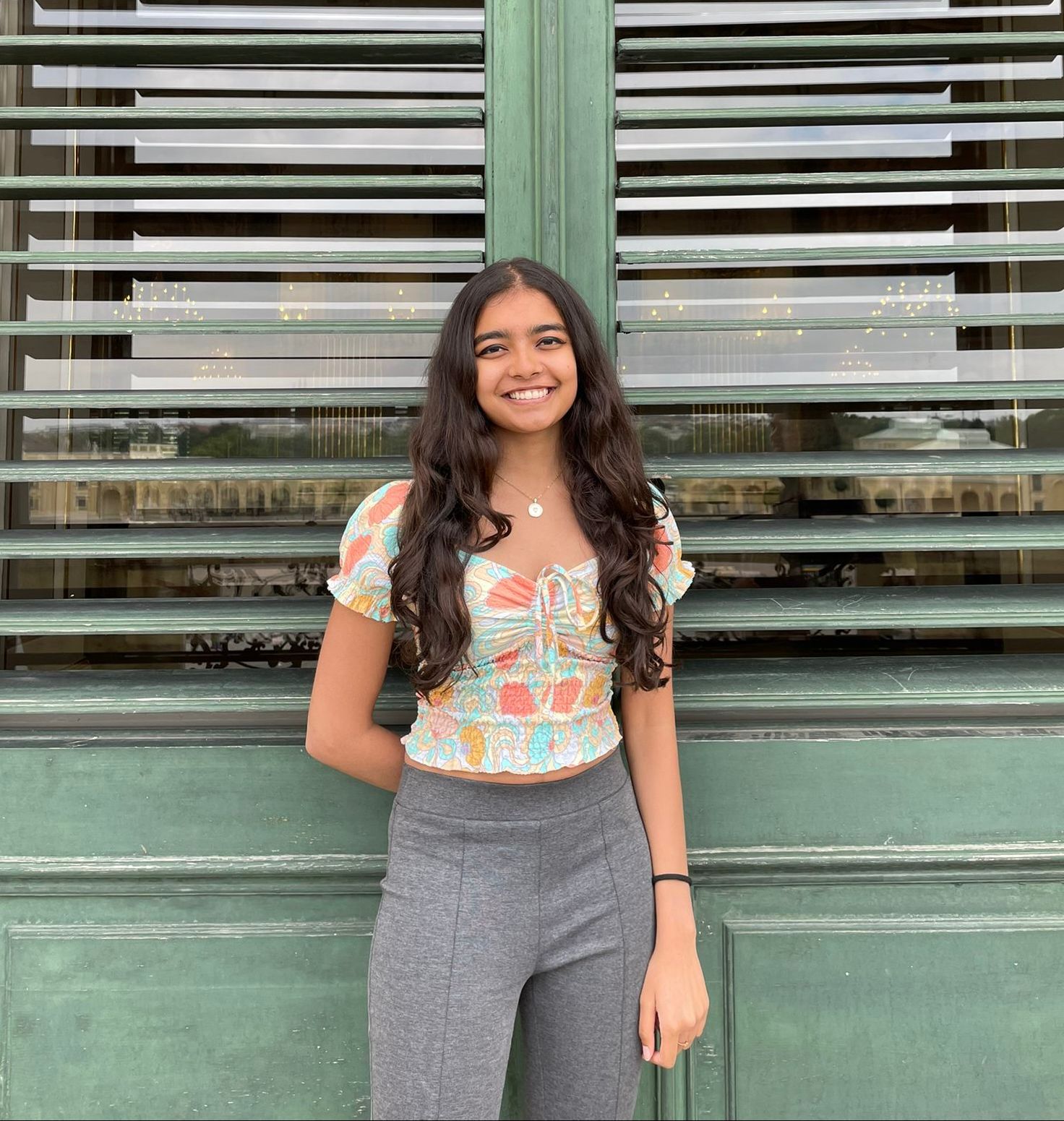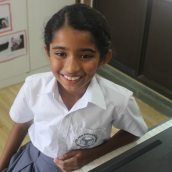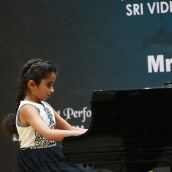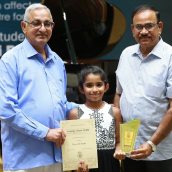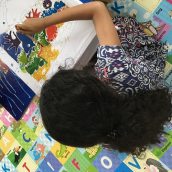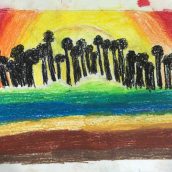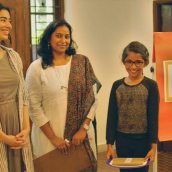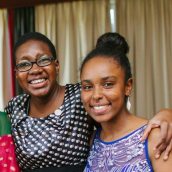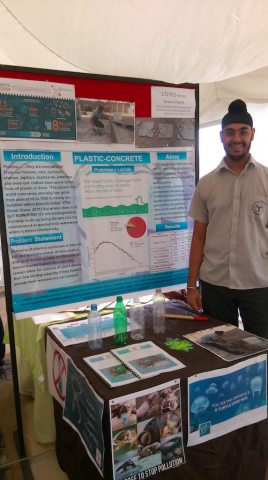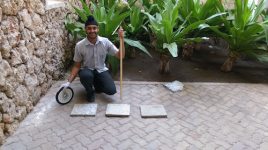Director's Welcome
Director of AcademiesThe Aga Khan Academies are a network of schools being established by His Highness the Aga Khan in countries across South and Central Asia, Africa and the Middle East.
As the Director of Academies, I have been entrusted with His Highness’s extraordinary vision for the Academies as a global learning community, where young people develop the capacity to become future leaders of civil society.
The underlying idea of the Aga Khan Academies network is to concentrate substantial resources on those exceptional individuals – students and teachers – who have the potential to transform society. When provided with a world-class education, exceptional students from any background can achieve their significant potential and in so doing improve their lives, the lives of their families, their communities, their country and the world.
At this time, we envisage a network of approximately 18 campuses across 14 countries that, when fully developed, will be teaching 14,000 students.
Each Aga Khan Academy will reach out to students of all backgrounds, regardless of culture, race, religion or financial circumstance.
The Academies follow the International Baccalaureate (IB) curriculum, ensuring a global standard of educational excellence and external validation through the annual IB Diploma exams.
The Academies also work to enhance the quality of teaching, the base on which good education rests. Each Aga Khan Academy will provide professional development programmes for teachers and school leaders from within the Academy as well as from government and other schools.
The students in our existing Academies are already achieving exceptional results across domains spanning academics, athletics and the arts. And our alumni, many of whom attend leading universities around the world, are demonstrating a deep sense of social responsibility and a commitment to return to serve their home countries.
Ultimately, we hope that the qualities of good leadership – sound moral judgment, self-discipline, a pluralistic outlook and civic responsibility – are the qualities that will distinguish Aga Khan Academy graduates.
"Our goal, then, is not to provide special education for a privileged elite – but to provide an exceptional education for the truly exceptional." I invite you to explore our website further to learn more about the Aga Khan Academies and the unique and innovative programme they offer.
With warm wishes,
Salim A.L. Bhatia
Director of Academies
Anahita Aman (Class of 2020): building on her Academy experiences to pursue International Development
Anahita Aman, a graduate of the batch of 2020 was here at the academy for 8 years. Currently pursuing History at University College London, she hopes to build a career in International Development.
Having spent her fundamental years at the Academy, Anahita credits the Academy for shaping her into who she is today, not just as a person, but in her interests and career choices as well. Anahita lived in the residences, and she majorly misses that feeling of knowing everyone and the close-knit community here, “which is hard to find in college when you are an international student in a different country” she expressed.
Anahita is currently preparing to pursue International Development as her career and the opportunities provided in school in terms of CAS (creativity, activity, service), and the internship programme at the time which felt like requirements, actually strengthened her application. She believes that the IB is more helpful than we assume it to be, as it instigates a voice inside you that you don’t get in the other curriculums which are a lot to do with mugging up. Anahita proclaims, “Even though you are working in criteria and a certain structure, you still have the space to express your viewpoint.”
The transition from school to university was one she found difficult “School does prepare you for all the writing and reading, but college just gets way more intense, the expectations are way higher, and in school, you have all these teachers who are constantly helping you and you can go sit with them but that kind of comfort is harder to find at university because it is a much larger community with thousands of students so comparatively school is a more close-knit community but university is daunting in that sense.”
The one experience that firmly stuck with Anahita was the Model United Nations (MUN). She served as the Secretary-General for AKAHMUN 2019-20. The MUN taught her a lot in terms of management, planning, communication, leadership and even finance as you work towards an event dealing with multiple stakeholders in the Academy. Known for her calm nature, Anahita was a completely different person in the MUN. She said “That was a fun thing, I never knew that side of me existed until I was put into the position. I didn’t know if I could do it but when you are in the atmosphere and put in that position I think some part of you just takes charge. That’s a new side of me that I saw, that boosted my confidence because I realised I could lead people if I needed to and it was a great thing.”
Anahita calls the Academy a second home, practically growing up there. She believes the IB, teachers, the residences, and her friends have helped and impacted her in more ways than one and have had a significant impact on who she is today.
Aga Khan Curricular Strands
The Aga Khan Curricular Strands (AK Strands) are a unique part of the programme offered by the Aga Khan Academies. The AK Strands are areas of learning aimed specifically at developing knowledge, skills and attitudes required by future leaders.
Our goal at the Academies is to develop young people who have strong local roots and are also globally minded. They should be able to become leaders in whichever fields they choose.
To help achieve this goal, we have identified five areas of learning, the Aga Khan Curricular Strands, that we believe are important for our students. These are:
- Ethics
- Pluralism
- Cultures (with an emphasis on Muslim civilisations)
- Governance and Civil Society
- Economics for Development.
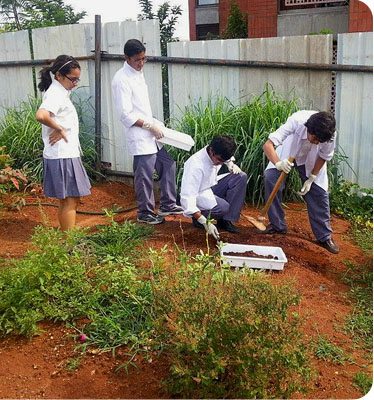 Implementing the AK Strands
Implementing the AK Strands
The Aga Khan Curricular Strands are not taught as independent subjects. Instead, we weave them into the existing subject areas of the academic curriculum. They help inform the selection of content and themes for study. The AK Strands also provide direction for school life outside the classroom in areas such as policy making, recruitment, student life and residential life.
Two of the AK Strands, Ethics and Pluralism, help students develop values and dispositions required by ethical leaders. Our students learn about these areas in theory and are also encouraged to practice what they learn in their everyday lives.
Through the other three AK Strands, our students learn about ideas that are important to the functioning of societies. In particular, they learn about how these ideas impact people’s lives in countries of the developing world. The knowledge they gain helps them understand key issues from both local and international perspectives.
The AK Strands in practice
The Aga Khan Curricular Strands were developed at the first Aga Khan Academy in Mombasa and are designed to be used in different cultural contexts. Teachers at the Aga Khan Academy Hyderabad helped tailor the AK Strands for the local environment in India and the teachers at the Aga Khan Academy Dhaka will do the same.
For example, grade 3 students worked on a history and geography unit about Hyderabad that related to Economics for Development. The students examined how the physical features of the area influenced the city and its economic activity. They learned about employment today and also looked at traditional forms of work, including a visit to a nearby weaving cooperative. This unit helped the students understand both general ideas about economics and their impact on daily life in Hyderabad.
Through the Aga Khan Curricular Strands, our students develop attitudes and values that will help them throughout their lives. They also gain knowledge and understanding that will allow them to contribute positively to their societies in the future.
For more information on the educational programme offered at the Aga Khan Academy Dhaka, please visit the Academic Programme page.
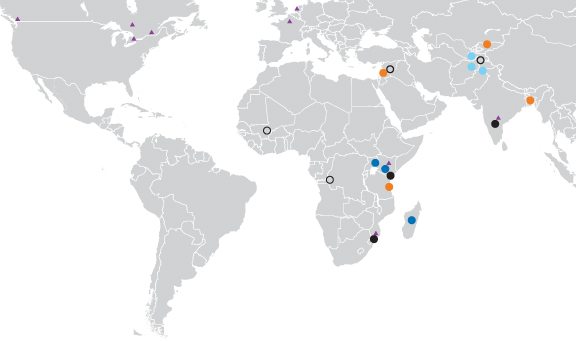
The Academies Network
The Aga Khan Academy Maputo is the third in a planned network of Aga Khan Academies being established in countries across Africa, South and Central Asia, Europe and the Middle East.
The aim of the Academies is to develop future leaders with the skills and knowledge to support positive development in their societies. We achieve this by recruiting exceptional young people from all backgrounds and providing them with the highest international standard of education.
Admission is means-blind and based on merit to ensure access for eligible students regardless of financial circumstances.
"...the Academies will be serious, focused, rigorous environments – but at the same time they will be spacious and joyous places. They will operate on the cutting edge of knowledge and pedagogy, but they will be rooted in history and steeped in tradition."
When complete, the network of Academies will form a global learning community of approximately 18 schools in 14 countries (map).
They will eventually serve approximately 14,000 girls and boys of exceptional calibre, graduating 1,500 students annually.
For more information, visit our Academies network home page.
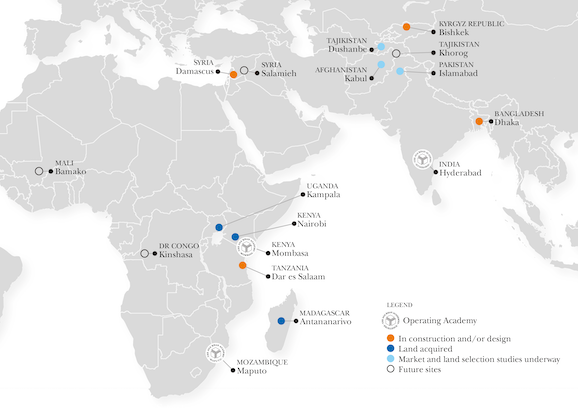
The Academies Network
The Aga Khan Academy Dhaka is the fourth in a network of Aga Khan Academies being established in countries across Africa, South and Central Asia, and the Middle East. The first Academy opened in Mombasa, Kenya in 2003, the second in Hyderabad, India in 2011 and the third in Maputo, Mozambique in 2013.
The aim of the Academies is to develop future leaders with the skills and knowledge to support positive development in their societies. We achieve this by recruiting exceptional young people from all backgrounds and providing them with the highest international standard of education.
Admission is competitive and based on student merit, regardless of a family’s ability to pay. Each Academy endeavours to meet the demonstrated financial need of each admitted student.
When complete, the network of Academies will form a global learning community of approximately 18 schools in 14 countries (map). They will eventually serve approximately 14,000 girls and boys of exceptional calibre, graduating 1,500 students annually.
For more information, visit our Academies network home page.
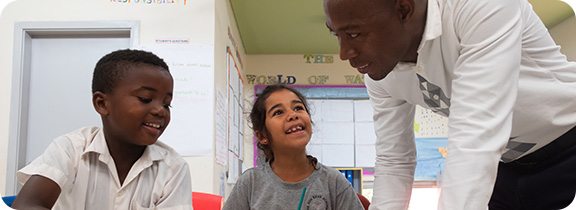
Admission Requirements
Choosing a school is an important decision in a child's and parent's life. We are here to help and answer any questions you might have.
We currently welcome enquiries of students for our Nursery, Junior and Senior School.
Our programmes are based on the principles and practices of the International Baccalaureate. The admission requirements for the Academy's programmes, including language requirements, are outlined below.
For the Aga Khan Academy Maputo, the admissions process can be followed in either English or Portuguese.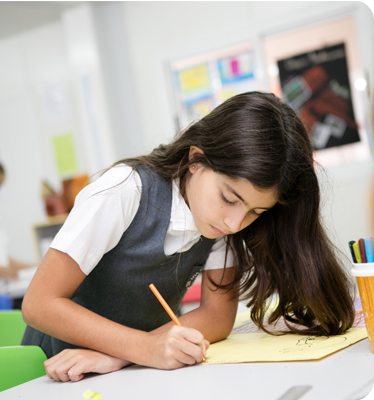 Admission is competitive and based on student merit, regardless of a family’s ability to pay. The Academy endeavours to meet the demonstrated financial need of each admitted student.
Admission is competitive and based on student merit, regardless of a family’s ability to pay. The Academy endeavours to meet the demonstrated financial need of each admitted student.
Nursery School
Kindergarten 1, 2 and 3: Early Years Programme
Students entering Kindergarten 1 must be 3 years of age by the 31st of August of the year of entry.
All prospective students must demonstrate the potential for high achievement. Each applicant will participate in a variety of assessment exercises.
Students may enter the nursery section without a strong prior knowledge of one of the languages of instruction, English or Portuguese.
Junior School
Grades 1–5: Primary Years Programme (PYP)
Students entering Grade 1 will ideally have completed at least three years of nursery school and must be 6 years of age by the 31st of August of the year of entry.
All prospective students must demonstrate a potential for high academic achievement and competency in literacy and numeracy. Each applicant will participate in a variety of assessment exercises.
Students may enter the first three years of the PYP without a strong prior knowledge of one of the languages of instruction, English or Portuguese. However, in the last three years of the PYP, students must have a basic level of proficiency in both languages before they may be admitted.
Senior School
Grades 6–10: Middle Years Programme (MYP)
All students applying for a place in the Senior School must have attained high scholastic achievement in their former educational institutions. They must also demonstrate a keen interest and participation in community service projects outside the classroom and/or extracurricular activities such as sporting activities, clubs, arts and music.
All prospective students must demonstrate a potential for high academic achievement and competency in literacy and numeracy at the school in addition to providing past student grade reports and certificates of achievement.
Grades 11–12: Diploma Programme (DP)
Applicants for the Diploma Programme must have demonstrated outstanding academic achievement as well as a record of active involvement in extracurricular and community service activities.
New students will not be accepted in the year of the Diploma exam
Applying to the Academy
For further information about admissions, please contact admissions.maputo@agakhanacademies.org.
Aanya Athota - Junior School's budding concert pianist
Erica Byenkya (Class of 2014): Contributing to society with love and generosity
Erica Byenkya, who is a fourth-year student at Saint Mary’s University in Halifax, Canada, is a graduate of the Aga Khan Academy Mombasa and originally from Uganda. Since leaving the Academy in 2014, Erica has been pursuing a Bachelor of Commerce at the university with a double major in marketing and computer and information systems. She is expecting to graduate from the university in May 2019.
“I think that my Academy experience was vital in my success in university so far,” Erica says confidently.
The Academy, she says, nurtured within her a love of volunteering that helped her make connections and friends and ensured she remained connected to her local community.
“I think that we were definitely more focused on encouraging independence and community service than the schools attended by other students,” Erica comments.
The experience of living in residence at the Academy, she says, also helped her become more self-sufficient and taught her how to take care of herself – this was useful when she moved to Canada for higher education.
At university, Erica has worked through three work terms as part of the cooperative education programme. In these three terms, she has worked as a marketing coordinator for a software development company and at a non-profit organisation focused on encouraging students and faculty in the sciences. She has also taken up volunteer work, including with a local after-school youth programme and as the public relations representative of the Saint Mary’s African Student Society (SMASS). She is currently preparing for her second year with SMASS.
Erica is also doing well in her academic work. She received an entrance scholarship from Saint Mary’s University, which was increased last year due to academic achievement. Erica thanks her counsellors at the Academy in Mombasa for supporting her with her applications.
“I had a very hard time writing my personal statements for my university applications and I know that without the help of my counsellors, I would not have been accepted into all the universities I applied to.”
At the Academy, Erica was one of the founders of a service group that aimed to support local farmers in the area by consulting with them about their families’ needs and fundraising to help meet those needs. Through their efforts in the first year, they helped one family send their youngest children to school, build a small shop to sell their wares and buy new seeds. The service group also helped pay the exam fees of the entire graduating class of a local school so they could all sit their final exams.One of the many things Erica misses at the Academy in Mombasa is her wonderful friends.
“I am still in contact with some of them online but being able to spend so much time with them was a gift I am very thankful for,” she says.
Her most unforgettable experience at the Academy, which she is very proud of, was learning to play the violin; this, to her, was the most difficult to learn among other musical instruments. She fondly remembers her teachers: Mrs Mwandawiro, her dorm mother and chemistry teacher, and Mr Dudi, whom she calls, “my wonderfully dramatic English teacher.”
“They both pushed me very hard because they had high expectations for me, and while I did not perform as well as I hoped in chemistry, their expectations always encouraged me,” she says.
Erica chose to participate in the International Baccalaureate (IB) programme because she felt, and still feels, it offered her greater flexibility in her choices for the future.
“With the national curriculum, you are restricted to three subjects in your final two years," she says. "But I was unsure about the career path I wanted to take, so I really appreciated being able to further study interesting subjects in the IB programme while deciding what I wanted to do with my future."
Erica says her plans after graduating from university are to stay and work in Canada for a while and then eventually make the decision about whether to pursue a postgraduate degree.
“I do see myself coming back to Uganda, but before that happens I would like to travel more.”
When asked what she would focus on to improve the lives of people in her country if she had all the resources at her disposal, Erica hoped that one day she could contribute to the renovation of the Ugandan library system. She believes this would benefit all the citizens of Uganda, especially the young students whose schools may not have large libraries or who seek safe and productive spaces to spend their free time.
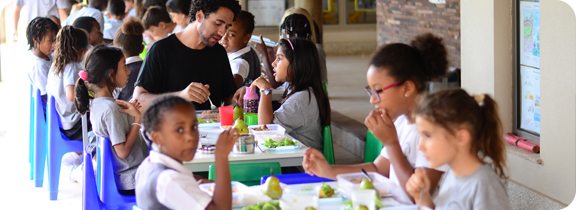
Terms and Conditions of Use of the agakhanacademies.org Website
1. Welcome
Welcome to the agakhanacademies.org website (the “Site”) of the Aga Khan Academies, which are part of the Aga Khan Education Services, an agency of the Aga Khan Development Network (“AKDN”). The Site is owned and operated by the Aga Khan Foundation (the “Foundation”). These terms and conditions govern your use of the Site. Please read them carefully. If you do not accept these terms and conditions of use, please do not use the Site. By using the Site, you agree to abide by the following conditions of use.
2. Content Rights
The copyright and all other rights in all of the material on the Site are owned by the Foundation, other members of the AKDN, related entities or third parties (hereinafter “Rights Owner” or together “Rights Owners”). All materials on the Site are presented with the permission of the Rights Owners. The content includes photographs, images, databases, and other audio-visual material, the copyright in which is owned by the Rights Owners and, as regards Rights Owners other than the Foundation, licensed to the Foundation for display on the Site.
Unless otherwise stated, all materials on the Site may be reproduced for non-commercial informational and educational purposes without permission, provided that (i) due acknowledgement is given to the Foundation or relevant Rights Owner, (ii) no modifications are made, (iii) and all copyright legends and notices are displayed in the same form and manner as on the original. Material may only be used in the language displayed on the Site. You may not adapt, alter or create any derivative work from any of the content of the Site, without prior written permission of the relevant Rights Owner or Rights Owners. You may not republish, distribute, sell or make any other commercial use of the content, without prior written permission of the Rights Owner. You may not retrieve content from the Site to create or compile, directly or indirectly, a collection, compilation, database or directory (whether through robots, spiders, automatic devices or manual processes), without prior written permission of the Rights Owner. You may contact the Foundation at: Aga Khan Foundation, 1 – 3 Avenue de la Paix, 1211 Geneva, Switzerland, data.protection@akdn.org.
You may not republish, distribute, sell or make any other commercial use of copyright material owned by a third party, without the prior written consent of that party, and such consent must be obtained directly. For avoidance of doubt, the Foundation does not represent nor does it act as an agent for these parties.
Nothing contained herein shall be construed as conferring any license in respect of the material, other than its reproduction as stated above.
All opinions expressed in any articles or other authored material on the Site are those of the respective authors themselves and do not necessarily represent the views of the Foundation.
The Site may contain links to other websites, which are not reviewed or controlled by the Foundation. The Foundation shall not be responsible for the content of any such websites nor for the terms of use applicable to the content of any such websites. You are solely responsible for any access and use of any such websites. It is your responsibility to consult the terms of use published on any such websites and to abide by them.
3. Use of the Site
You may only use the Site in accordance with these terms and conditions and for lawful and proper purposes.
The Site is provided to you on an “as is” basis. There is no guarantee that the Site or any content is error-free, suitable for any particular purpose, accurate or up-to-date. You are entirely responsible for your use of the Site, and for the consequences of relying on any content. You are advised to verify the accuracy of any information before relying on it.
The downloading or other use of the material on the Site is done at your own discretion and risk, and with your agreement that you will be solely responsible for any damage to your computer system, loss of data, or other harm that may result from such activities.
To the full extent allowed by applicable law, you agree that the Foundation will not be liable to you for any such damage or loss that may arise in connection with or as a result of your use of the Site, or in connection with your use of other websites linked to the Site.
Your access to the Site may be suspended, blocked or terminated at any time without prior written notice thereof.
4. Names Acronyms Symbols and Logos of Rights Owners – Use of Trade or Service Marks
The names, acronyms, symbols and logos appearing on the Site are owned by the respective Rights Owners and are protected. You shall not use or adapt any such names, acronyms, symbols and logos, nor imply that you are connected or associated with them, unless you have obtained the prior written permission of the Rights Owner. You may contact the Foundation at: Aga Khan Foundation, 1 – 3 Avenue de la Paix, 1211 Geneva, Switzerland, data.protection@akdn.org.
The use of trade or service marks on the Site is consistent either with the usage policy or with the consent and permission of the Rights Owner.
5. Privacy Policy
Please read the privacy policy (below) which also forms part of these conditions of use. You have the right at any time to access, rectify and/or delete your personal data (and that of the person or persons for whom you act as legal representative) by sending an e-mail to data.protection@akdn.org or contacting the Foundation at: Aga Khan Foundation, 1 – 3 Avenue de la Paix, 1211 Geneva, Switzerland.
6. General Conditions
The information and material on the Site may be edited, improved, modified or changed at any time, without notice. The Site may be terminated at any time, without notice.
These terms and conditions of use may be modified from time to time, and any such modification shall be effective immediately upon posting of the modified terms and conditions of use on the Site. Accordingly, your continued access or use of the Site is deemed to be your acceptance of any such modified terms and conditions.
If you breach any of these terms and conditions, authorisation to access and use the Site will cease and terminate, and any material downloaded or printed from the Site in violation of the terms and conditions must be immediately destroyed.
If for any reason a court of competent jurisdiction finds any provision of these terms and conditions to be unenforceable, that provision shall be enforced to the maximum extent permissible and the remainder of the terms and conditions shall continue in full force and effect.
Any failure to enforce or exercise any right inherent in any provision of these terms and conditions, or any related right thereof shall not constitute a waiver of that right or provision.
The ordinary courts of Geneva shall have exclusive jurisdiction to settle disputes arising out of or in connection with these terms and conditions (including the privacy policy). These terms and conditions (including the privacy policy) are subject to and governed by Swiss law (including the Berne Convention for the Protection of Literary and Artistic Works).
Privacy Policy
This privacy policy constitutes an integral part of the terms and conditions of use of the agakhanacademies.org website (the “Site”), which is owned and operated by the Aga Khan Foundation (the “Foundation”). It describes the ways that the Foundation undertakes to protect your personal data (and that of the person or persons for whom you act as legal representative) (the “Personal Data”), the way in which we collect information from you when you use the Site and for what such data may be used. This privacy policy applies to any information obtained by the Foundation through your use of the Site. It is not applicable to any internet websites controlled by third parties that the Site may link to (“Third Party Sites”). Please review the privacy statements of Third Party Sites, as the Foundation is not responsible for and has no influence on the content or the privacy practices of Third Party Sites.
1. Personal Data is collected from you in various ways.
From time to time, there may be projects, programmes and services which may allow you to provide Personal Data to us via the Site. By providing Personal Data, you are consenting to the Foundation’s use of the Personal Data, and you consent that the Foundation may disclose this information to other members of the AKDN and related entities or to third party providers, inside or outside your country of residence, for data processing. You also consent to the retention of this Personal Data.
In particular, your Personal Data can be collected as set out in the Appendix to this privacy policy.
You are entitled to a copy of your Personal Data and to have it rectified or deleted as required by applicable data protection legislation. Should you have any concerns or requests regarding your Personal Data, you may send an e-mail to data.protection@akdn.org. Please note it may take some time to process your request and to cancel your participation, if this is requested. During any such period your Personal Data will still be available on the Site. We will endeavour to amend or remove your information from the Site as quickly as is reasonably possible.
2. No one under age is allowed to enter any Personal Data or otherwise communicate with the Site, unless the legal representative or representatives of the minor (generally the minor's parents or parent) and us formally consent in advance. Personal Data entered by a minor unbeknownst to us without such consent will be deleted from our database as quickly as possible after we become aware of the fact.
3. We use appropriate technical and organisational security measures in order to protect Personal Data against unauthorised access, accidental or intentional manipulation, loss and destruction.
4. The Internet is a global environment. In order to administer the Site, we may need to transfer Personal Data to locations outside the European Economic Area (the “EEA”) and process Personal Data in locations outside the EEA. The level of data protection offered in such jurisdictions may be less than that offered within the EEA. By clicking “subscribe”, “submit”, “log in” or “submit by e-mail”, as the case may be, or any other such term which results in you sending us Personal Data, you accept this privacy policy and you consent to such transfers.
5. The Foundation may disclose Personal Data when required by law or regulation or in the good faith belief that such action is necessary in order to conform to the edicts of the law, comply with legal mandates, or to protect the rights, property, or personal safety of personnel of the Foundation, other members of the AKDN, related entities, the Site’s users and the public.
6. The Site uses “cookies” (text files) which will be saved on your computer and which will allow an analysis of your use of the Site. This information will be used to compile reports about the Site activities for the Site operator and will facilitate provision of additional services in relation to the Site and internet utilization. If you do not wish to receive “cookies”, you may set your web browser to reject these, if your browser so permits.
7. The Site keeps track of user activity via log files stored on our web servers. The log files include information on IP addresses, browser types and versions, pages viewed, and entry and exit paths. Log files assist us in offering a personalised Web experience, diagnosing server problems, administering the website and tailoring information for the end-user.
8. When we send you emails, we may include a Web beacon to allow us to determine the number of people who open our emails and the links on which they click. Web beacons can be refused when delivered via email. If you do not wish to receive Web beacons via email, you will need to disable HTML images in your email software.
9. By using the Site, you acknowledge that you have read the terms of this privacy policy and that you consent to our use of data for the purposes set out above. This privacy policy may be amended from time to time and any changes will be posted on the Site and will become effective when posted.
10. Should you have any concerns or requests regarding your Personal Data, please send an e-mail to data.protection@akdn.org or contact the Foundation at: Aga Khan Foundation, 1 – 3 Avenue de la Paix, 1211 Geneva, Switzerland.
APPENDIX
You have the option on the Site:
- of subscribing to the Aga Khan Academies Newsletter (the “Newsletter”). In registering your name and e-mail address, you are providing your Personal Data to us via the Site. By clicking “join now” or any other such term which results in you sending us Personal Data, you are consenting to the Foundation’s use of your Personal Data to enable the Foundation to send you the Newsletter, from time to time. If you wish to cease receiving the Newsletter, then click “unsubscribe”.
- of applying for a place at an Academy. In filling out the forms, you are providing Personal Data to us via the Site. By clicking “submit” or any other such term which results in you sending us Personal Data, you are consenting to the Foundation’s use of your Personal Data to enable the Foundation to give you the requested information. You consent that the Foundation may disclose your information to third party providers, inside or outside your country of residence, for data processing.
Prabhdeep Lochab: Seeking simple solutions to global problems
Being a global citizen, leader and environmental enthusiast is no easy task. Prabhdeep Lochab’s story is a testament to the hard work, dedication and commitment that goes into innovating “green” solutions for a sustainable future.
A second-year Diploma student at the Aga Khan Academy campus in Mombasa, Prabhdeep Lochab was the gold medal recipient at the Golden Climate International Science Fair Olympiad for his “plastic concrete” invention.“I wanted to come up with something unique which was practical and easy to carry out,” Prabhdeep says. For his project, Prabhdeep aimed to alleviate pollution in construction, using plastic in a concrete-mix for construction of infrastructure for non-commercial construction. This concrete could be used to construct walkways, driveways, and parks.
When asked about his motivation to pursue a science project for the fair, Prabhdeep said “I have a personal interest in science and I love inventing and being creative to help find solutions to everyday problems.” The simple yet effective solution Prabhdeep managed to devise exhibits his passion for the sciences, as well as his passion to solve environmental issues on a local and global level.
When reflecting on the process, Prabhdeep claimed that it was very challenging to balance school work and extracurricular activities along with finding time to work on his invention.
“I would come up with a new idea every meeting and it was rejected as being either to simple or relatively complicated to carry out. It was very frustrating but I was committed and I kept on trying,” he says.
He appreciates the meeting time he had during the science club that was offered, as he was able to use that time to discuss his ideas with teachers and create a research plan. “We met once every week on Tuesday to discuss the progress of our ideas and concepts that we wanted to use as our projects. Being a part of this group really pushed me to my limits.”
After much struggle and careful mentoring from his science teachers, Mr Godfrey Kokeyo and Mr Charles Gumba, at the Academy, Prabhdeep’s project progressed to the national level. For Prabhdeep, the experience was already so fulfilling because of the hard work, dedication and commitment that went into creating the project. “I realized what a huge event this was and that it was something big to come as far as I had. I knew that I had achieved something great even if I didn’t win anything,” Prabhdeep shared.
Prabhdeep had the opportunity to represent the Academy and his country, Kenya, at the international level at the Golden Climate International Science Fair Olympiad. His project was shared with various ministers from Kenyan environmental authorities and also in front of a panel of judges, who are all acclaimed scientists in their respective fields. His work was particularly recognized for the detailed lab report, experimentation process and presentation of data using a diverse range of media (graphs, text, etc).
Prabhdeep and his parents were both pleasantly surprised when his project was not only awarded the gold medal in his category, but was also awarded a special prize from the National Environmental Management Authority.
For Prabhdeep, this opportunity was so rewarding as he claims it helped him increase awareness of his personal strengths and helped him grow as an individual.
Through this experience, not only was Prabhdeep able to devise a simple solution to help alleviate pollution, but he was also able to apply skills learned in the classroom at a practical level such as writing lab reports and representing data. His hard work, dedication and commitment to make the world a better place is evident in the accolades his project received at the Golden Climate International Science Fair Olympiad.
By Karishma Bhagani
